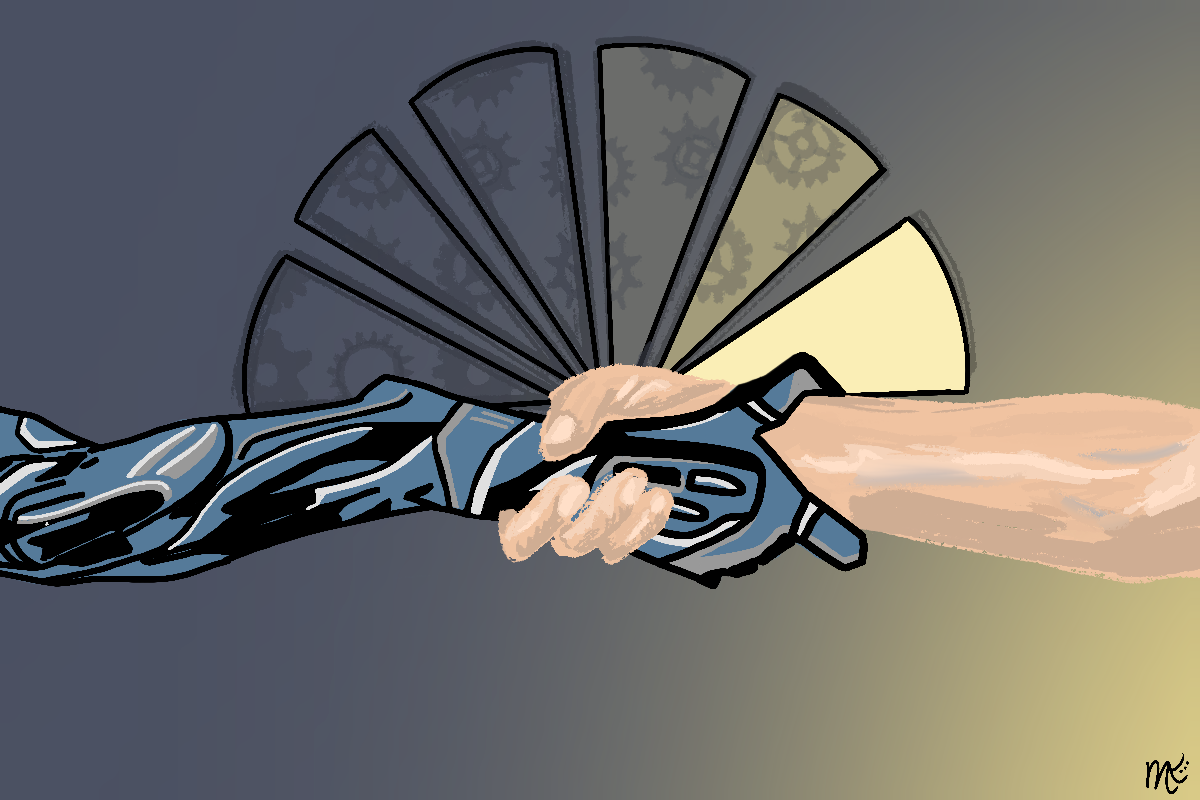Of course you would get a 97, you’re such a perfectionist.
Your room is so clean. You’re obviously a perfectionist.
All I can do is respond with a chuckle and shake my head, acting humble and pretending to take yet another perfectionist remark as a compliment. Beneath my smiling demeanor however, I think to myself: It’s not as simple as you think – this is just the tip of the iceberg.
In reality, the 97 on my essay was the product of proofreading until 11:58 p.m. and my room is more often cluttered than not. This is the stereotypical perception of perfectionists: getting good grades, being the most efficient time managers, being productive, never losing motivation and knowing what exactly they will do in life.
However, most perfectionists are far from being efficient time-managers. Ironically, perfectionists are really the types of people most likely to either procrastinate or ponder over a single task longer than they should, unable to move on until they are sure that it is flawless.
Perfectionists unconsciously set high standards and unnecessarily pose a copious number of restrictions on themselves. Being one myself, I know how overwhelming it is to think about how much effort is needed to meet those expectations, and the mere thought of failing to meet my goals scares me away from starting assignments altogether.
When I was younger, I wanted to make the perfect birthday card for my best friend the day before her birthday party. All I had in front of me was an erased pencil line on an otherwise blank piece of paper staring back at me. I hardly drew an inch of the ‘H’ of ‘Happy Birthday” before immediately reaching for my eraser, deciding that the line was not straight enough.
This would keep happening until the paper was one erase away from tearing. Frustrated, I left the card unfinished until the very last minute. Tired, annoyed and disappointed with myself, I hastily finished the card, the result far from what I had imagined it to be. Even though my friend gushed over it the next day, I was not happy with the way her card had turned out.
As a perfectionist and procrastinator, I put off starting on an assignment especially when it’s something new. I put off work for I fear not knowing how to go about the assignment or that the quality of my work will not meet my unrealistically high standards. Of course, wanting to succeed is an admirable ambition, but not to the extent that the person is so afraid of doing something incorrect that they do not even begin.
The thought of failing to meet, let alone exceed, my expectations is so terrifying that I procrastinate yet again, creating a barrier in my mind, hindering me from moving ahead.
See where this is going? Perfectionism and procrastination are a vicious cycle.
Being in an academically competitive environment, it is natural to be determined to work hard and minimize making mistakes. If the person is not careful, however, avoiding mistakes can slowly turn into a habit that becomes especially dangerous when the person has several activities on their plate.
This “all or nothing” attitude is a disguised hindrance to progress. If a person is too absorbed in making something perfect and looks to correct all errors, they will more than likely succeed in doing well on that assignment. The downside is that it would have likely taken up a large chunk of their time, leaving them with spilled over work for the next day or time slot.
The purpose of perfectionism ultimately backfires because procrastination eventually creeps its way through the minutes.
Perfectionism is not easy to overcome. It is hard to resist the temptation of pondering over something longer than it is worth it, just to ensure that it is clear of mistakes. I know there is nothing more unsatisfying than submitting an assignment without reading over it at least four times. I know how exhausting it is to find a starting point when there is no motivation.
At the same time, perfectionism is not impossible to overcome. Know that it is natural to make a mistake, and accept that you will more than likely make at least one, especially when starting something new. This way, you are not “failing.” You know what to expect, which erases expectations from your head that have been subconsciously created, and that helps keep the progress going.
Nothing in this world is perfect; just like how no leaf is perfectly symmetrical, no flower has petals that are of equal lengths and no cave has a perfectly carved entrance, no human is perfect in what they do.
Follow @CHSCampusNews on X.
























Nyah Rama • Oct 13, 2023 at 10:28 pm
This was SO amazing!!